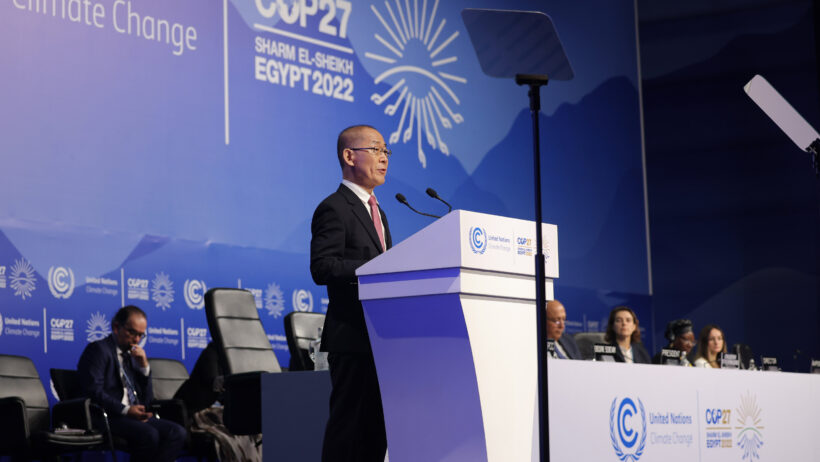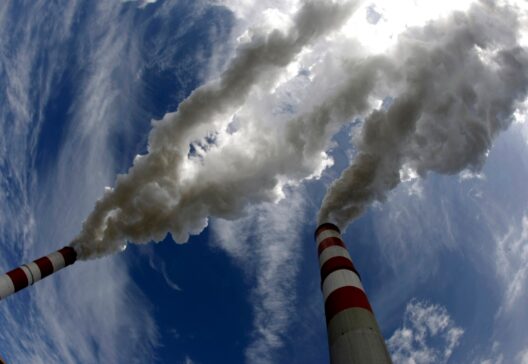Energy efficiency stands as a pivotal facet in the ongoing crusade against global warming. It is not merely a trend; it is a necessity in combating the escalating climate crisis. By optimizing how we consume energy, we can significantly curtail greenhouse gas emissions, lessen our carbon footprint, and mitigate the deleterious impacts of climate change. Understanding the myriad dimensions of energy efficiency reveals its potential as an indispensable tool in our combined efforts for environmental preservation.
The essence of energy efficiency is succinctly the ability to do more with less, to achieve the same output while consuming fewer resources. This principle applies across various sectors, including residential, commercial, and industrial domains. In essence, energy efficiency encompasses a plethora of strategies and technologies designed to reduce energy consumption without sacrificing performance. By integrating energy-saving practices into our lives, we can seamlessly contribute to reducing global warming.
To illustrate, one of the most accessible ways to enhance energy efficiency is through the implementation of energy-efficient appliances in homes. Modern appliances are engineered to consume significantly less energy than their older counterparts. For instance, ENERGY STAR-rated devices meet stringent energy efficiency guidelines, which translates into lower utility bills and reduced energy demand. As households opt for such appliances, collectively, they can lead to substantial reductions in national energy consumption, thereby decreasing carbon emissions attributed to fossil fuels.
Advancing beyond household improvements, the commercial sector also plays a critical role in energy efficiency. Businesses can adopt a myriad of measures, from retrofitting lighting systems with LED technology to enhancing HVAC systems for maximum efficiency. These innovations do not just conserve energy; they also foster a conducive work environment, improving employee productivity and wellness. In an era where companies are scrutinized for their environmental impact, energy efficiency can also bolster corporate responsibility and appeal to eco-conscious consumers.
Moreover, the industrial sector exhibits an enormous potential for optimizing energy consumption. Factories and production facilities can engage in comprehensive energy audits to identify inefficiencies. Implementing more efficient machinery, optimizing production processes, and reducing waste can culminate in staggering decreases in energy consumption. In this context, the investment in energy efficiency technologies is not just environmentally sound but economically prudent, as it often results in significant cost savings over time.
Beyond individual actions and corporate practices, the role of government and policy advocacy cannot be overstated. Policies promoting energy efficiency standards can create a framework that incentivizes innovation and investment in new technologies. Governments can implement tax incentives, grants, and rebates for both businesses and individuals who adopt energy-efficient products or practices. By fostering an environment that encourages energy conservation, the government plays a pivotal role in overcoming the inertia associated with energy inefficiency.
Furthermore, public awareness and education are paramount in enhancing energy efficiency. Many individuals remain oblivious to the impact their lifestyle choices have on energy consumption. Initiatives that educate the public about simple energy-saving practices—such as utilizing natural light, properly insulating homes, or practicing mindful consumption—can galvanize a grassroots movement towards energy efficiency. Each small action, when multiplied by millions, has the power to engender substantial change.
Technological advancements further augment the capabilities of energy efficiency. Innovations such as smart grids, energy management systems, and home automation systems empower consumers to monitor and control their energy use in real time. By employing these technologies, individuals and organizations can identify energy consumption patterns and trends, allowing for targeted strategies to further enhance efficiency. These technologies demystify energy consumption and facilitate a culture of accountability regarding energy use.
Furthermore, pursuing renewable energy sources in conjunction with energy efficiency is essential. Although energy efficiency minimizes demand, transitioning to renewable energy enhances the sustainability of energy sources. Utilizing solar panels, wind turbines, and other renewable energy technologies can radically decrease reliance on fossil fuels. Thus, the synergistic relationship between energy efficiency and renewable energy catalyzes a more sustainable future and serves as a formidable response to climate change.
The intersection of energy efficiency and climate action extends into transportation as well. The transportation sector is one of the largest contributors to greenhouse gas emissions globally. Promoting energy-efficient vehicles, enhancing public transportation systems, and encouraging alternative modes of transportation such as biking and walking can lead to significant emissions reductions. Redesigning urban spaces to prioritize energy-efficient public transit systems fosters a shift in societal behavior towards sustainable transportation alternatives.
In conclusion, energy efficiency is indeed the secret weapon against global warming. It offers a spectrum of opportunities to reduce energy consumption and greenhouse gas emissions, thereby mitigating the impacts of climate change. From improved household appliances to cutting-edge industrial practices, energy efficiency holds the key to unlocking a sustainable future. As individuals, communities, and policymakers join forces to prioritize energy efficiency, we can forge a path towards a healthier planet. Together, we possess the power to transform lofty ideals into tangible realities, marking our commitment to environmental stewardship and a sustainable legacy for future generations.








